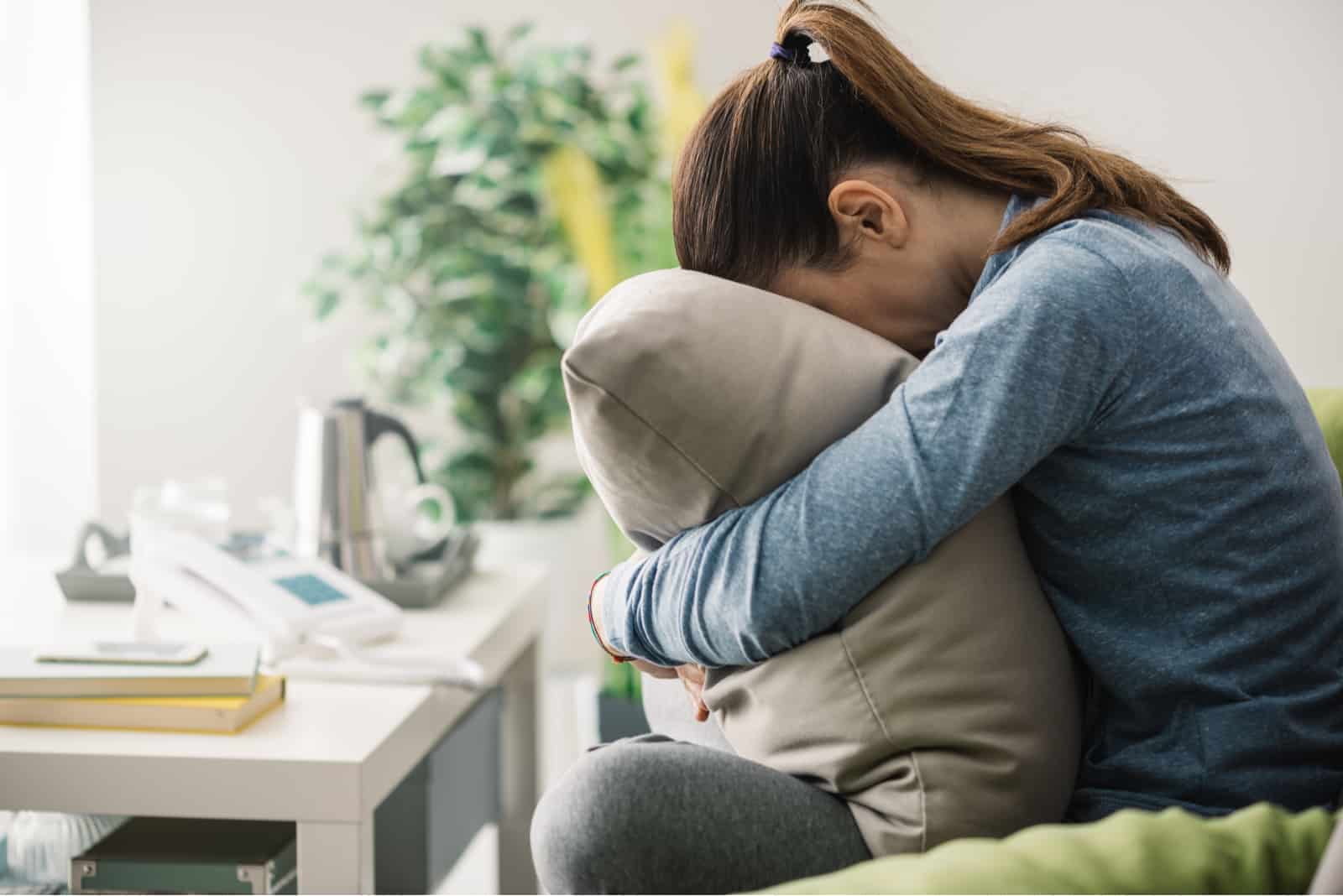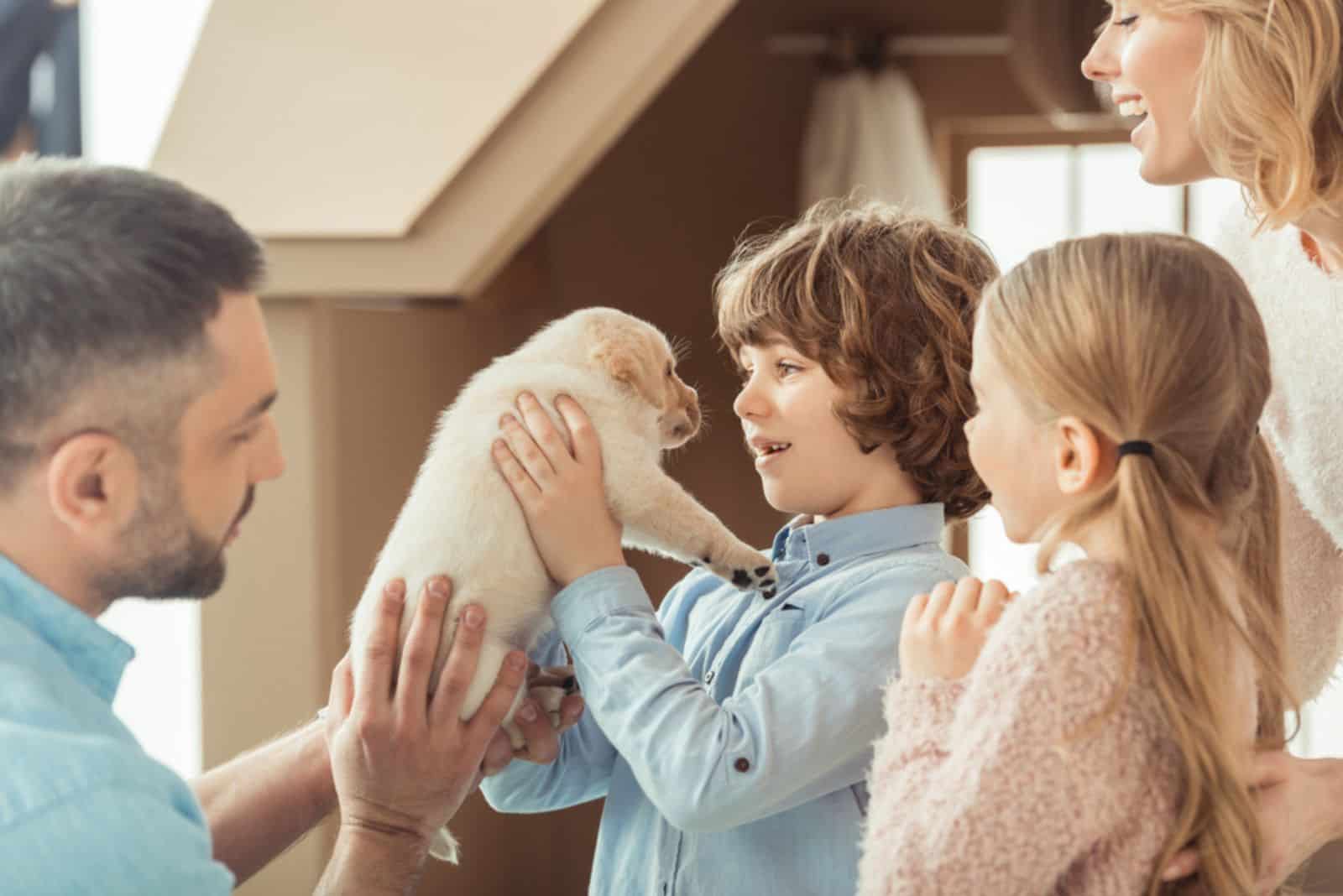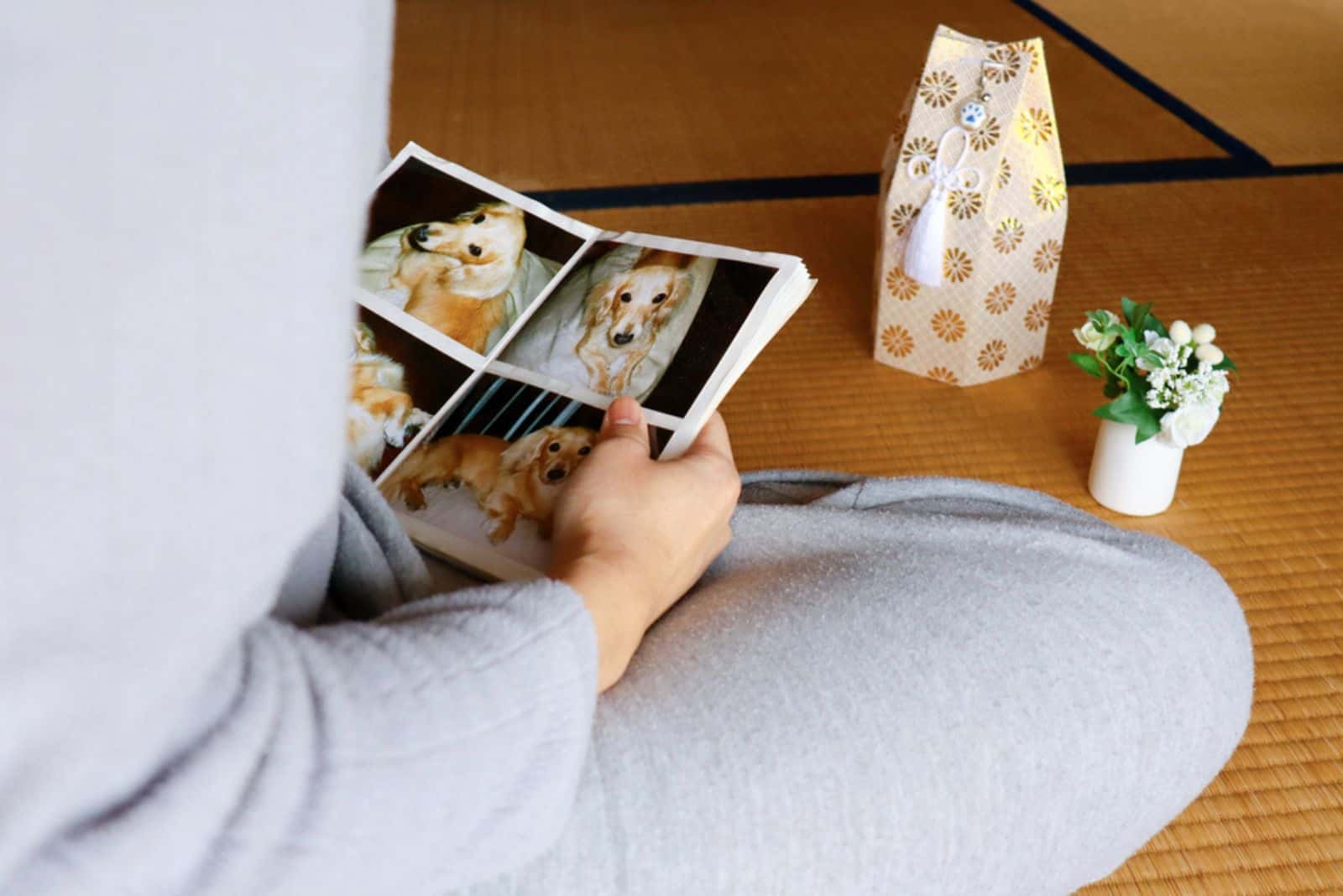One topic that is often avoided in many circles is one that needs the most attention, learning how to deal with the eventual death of our pets.
The universe has, unfortunately, decided that dogs and other pets have severely shorter lifespans compared to us humans.
That’s why having to learn how to cope with the death of your dog is an inevitability.
It’s by no means an easy thing to come to terms with as, in most cases, it’ll feel like it’s gone in an instant.
It feels like he was ripped from you unfairly without feeling like you’ve had a chance to say goodbye or that you didn’t get enough time with him.
Believe me, it’s perfectly normal to feel these things, but you’ll need to learn how to process them.
This way they won’t remain an emotional hurdle in the back of your mind that will prevent you from moving on.
The most important thing is to manage these feelings in a healthy way, and I’m here to try and help you out in taking the first step.
I hope it helps, even just a little.
Processing Grief

The first step to moving on with your life is to process the jumble of emotions that are coursing through you after the fact.
You need to rationalize exactly what you’re feeling so you can start getting things back in order, picking the pieces up.
Whether this is done on your own or through the help of others, or a mix of both, it doesn’t matter.
Different people learn to deal with grief in different ways.
What is important is that you figure out yours, and here are some of the methods that can hopefully manage that:
1. Going To Therapy
Though the thing that many people often believe they don’t need, going to a therapist is definitely my first choice in terms of dealing with the loss of a dear pet.
This is especially true if the grief is so strong that it’s interfering with your daily life.
Therapists are there to listen to you and to help you make sense of what you’re feeling.
However, it’s not their job to fix, but rather to guide you in the right direction and to help make things a little easier for you to overcome.
They help prepare you mentally for the work needed to do so so that, in the future, you can handle these things better should they happen again.
I can personally say that mine has helped me in coping with the death of my dog when I lost mine.
It was a great and comforting revelation when everything was explained to me.
I can only hope that you experience the same thing.
2. Reaching Out To Others Who’ve Gone Through Similar Experiences

When one loses a pet, it’s often difficult for people who’ve never lost one or owned one in the first place to understand just how hard such a moment can be.
That’s why it’s important to find those who do understand.
A support group is the most likely choice, a group of people who you can share how you feel about it so you can help one another in the long journey to recovery.
Why not turn to family and friends, though? Wouldn’t they understand?
Well, unless they’re pet owners themselves, then they’re part of the group that likely won’t understand what the big deal is.
They may not value your grief as much as if it were over losing a human friend.
If the dog was a family pet, then your significant other, kids, siblings, or parents, depending on your age will know.
That said, it may be tough to help one another out in such a tough time, so, if it doesn’t work, do keep yourself open to support from others.
However, if possible, do be there for your family members if they’re taking it just as hard, it does still help regardless.
3. Know That Your Grief Is Justified
As I’ve touched upon in #2, there will be people who will think you might be overreacting.
People who think that losing a pet isn’t the same as losing someone on the more human side and who will say that pets don’t evoke such strong emotion.
Know that the people judging you are wrong.
All living beings, human or otherwise, we can form an emotional attachment to, and dogs are no different.
Losing them will evoke all sorts of emotion, and someone telling you that you shouldn’t be feeling what your mind does on instinct is just plain wrong and you shouldn’t let them get to you.
Process your feelings at your own pace.
There’s no need to just get over it quickly as we all take different amounts of time to move on.
4. Find Something To Keep Your Mind Off Things

While grieving is a perfectly healthy process, too much of it can end up having a growing negative impact on your health, mental health in particular.[1]
You need to help yourself to slowly move on from the event, and the best way to do so is to start doing things you love again, something to fill the void created by the pet’s death.
Normally this involves picking up a hobby that you may have set aside because you didn’t have time for it or going on a vacation to help relieve stress, or similar.
Again, people handle stress differently. Some find relief in just doing work, others find that exercise helps expel the stress or doing any other cathartic activity.
Find the one that helps you.
It may be made easier if you have someone to help you find one, be it a therapist, a family member, or someone from your support group.
5. Immortalize The Memory Of Your Trusted Pet
One thing that’ll help you manage the grief and to do one final act of respect and appreciation for your dog is to build a memorial for him.
Something to remember him by and a place that you can come to every now and then to honor his memory.
A gravesite, or a small shrine in your yard, anything that can symbolize the bond you two shared.
This will allow him to live on, in a sense, remembered by you and all those who see it passing by.
You can even make it your tradition to visit it and leave something there every now and then as a way of coping with the death of your dog..
It’s sure to bring you some semblance of peace and can serve as a final act for you moving on when you decide to erect it.
The way I did it was just getting one of my favorite pictures of my dog enlarged, framed and put up on a wall.
This allowed me to see him almost every day when I woke up, making my day that much easier to manage.
Why Does It Hurt So Bad?

A question we always ask ourselves the moment the feelings come pouring in when the realization of our dog’s death sinks in.
A flood of grief that hits you like a truck that can leave you overwhelmed, and it hurts so bad because he was your furry best friend, your family.
Sure, he may not be related by blood, but you and him have shared a home and a countless number of moments, good and bad, together, over his entire lifespan.
That’s a lot of memories made, and when that final page turns, the thump of the scrapbook feels like a stab to the heart.
It can leave you emotionally paralyzed with a deep scar in your soul, one that will take a long time to heal, if it ever does.
It’s even worse when you realize that the air of emotion that filled the halls of your home has now evaporated.
When you know you won’t hear that happy pitter patter of legs when it’s time for walkies or that little guy running up to greet you when you come back from work.
Your pet is never just a pet.
He was a part of your routine, your adopted family member who you’ve learned to love and who has loved you back.
He was someone who had helped you deal with some tough times, your emotional support and a rock that added to the stability of your life.
And now, that rock was pulled away and you’ve fallen, pieces of you scattered, so it’s natural to cry, to hurt, to grieve.
The Feeling Of Guilt

Aside from the strong bond you two have likely shared which is causing all of these emotions to come flooding in, another one will rear its ugly face first, guilt.
This guilt will have you judging yourself, questioning whether there was something more you could’ve done regarding your dog’s death.
Could I have noticed the signs earlier and gotten him help? Would it have made the difference?
If I was just a better owner, maybe he could’ve lived for a few more months?
If only I had more time, it wasn’t enough, should I have spent more time with him?
These are just some of the most common ones, but there may be others depending on your way of thinking.
And this is likely to keep eating away at you for a while.
This feeling can be even worse if your dog was dying and you were asked the choice of whether to euthanize him or not.
When his life is left in your hands having to make the heavy decision to go through with it stings all the more.
You’re likely to ask yourself if you’ve made the right choice no matter what route you pick.
However, I’m sure that your precious pooch loved you no matter what, and that you’ve done the best that you possibly could for him.
You don’t need to play it perfectly because nobody is asking you to, least of all your dog.
And believe me, in the case of euthanasia, vets only suggest the option if your pup is in a lot of pain and suffering from a likely terminal condition with nowhere left to go.
Though, I’m just someone on the internet telling you this, so it may not hold as much weight as it coming from the mouth of a close friend or family.
How Long Does It Normally Take For The Grief To Pass?

It really depends from person to person.
Some people can move on a mere day after the fact while others may never end up getting over it with how heavily the passing affects them.
Some can have it come in all at once while others experience the 5 stages coming in gradually.
I’d say that you shouldn’t hurry the process along and should allow it to pass naturally.
Don’t look at it as something that needs to pass, but rather as something that will pass eventually.
Should I Get A New Dog?
It depends, honestly.
Living Alone
If you’re living alone, I’d say get one when you feel you’re ready.
Allow some time to pass after the passing of your dog and your grief so that you know you’re mentally prepared for another pet.
If you feel like you won’t be able to handle another pooch after what happened, it means that you’re not quite ready just yet.
If you’re seeing a therapist, they may help you know when the right time for that step is.
Part Of A Family

If you’re a family man, you have to consider everyone else’s state of mind as well.
Your significant other, and especially your kids[2] may need a bit more time to move on after your pet’s death to be ready to take another one into their hearts.
Once everyone is ready and an adequate amount of time has passed, do a family meeting beforehand.
This way you can gauge everyone’s thoughts on the matter of bringing a new furry member of your family.
SEE ALSO: Do Dogs Know When They Are Dying? This Is My Answer
In Conclusion
As man’s best friends, dogs are often seen as part of the family for a lot of people.
It’s no wonder that news of his passing can feel incredibly painful and coping with the death of your dog can end up becoming an exceptionally difficult task.
Grieving for our dear doggos is a perfectly natural thing to do. Allow yourself the time to do so and seek help from others if needed. There are people out there who can help.
Don’t let yourself go either. Your physical health is just as important during this period as your mental health is.
Finally, please try not to eat yourself up from the guilt that you may be feeling. I trust that it’s the last thing your doggo would’ve wanted you to do.
There’s that famous saying that All dogs go to Heaven, so you can at least comfort yourself with that fact, and, if not, he’ll still be with you in spirit.
Just, please, writer to reader, find someone to talk to about it.
I’ve had to cope with the deaths of two of my good boys, and having a place where you can just air your grievances out will lift a massive weight off your chest.
Until next time, pet parents, and my sincerest condolences.
RELATED LINKS:
- All About Dog Behavior Before Death: 14 Signs Explained
- When To Euthanize A Sick German Shepherd: 6 Signs
- Dog Kidney Failure: When To Euthanize? The Hardest Decision
References:
[1] Adriana C. S., Natalia P. O. R., Alexandre R. M. S., Oscar A.-C., Flavia P., Antonio E. N., Sergio M., Tamires M. P. (2014), Neurological aspects of grief, DOI
[2] Katherine M. C., Yiwen Z., Kathryn A. D., Samantha E., Kristina J., Kristen N., Andrew D. A. C. S., Erin C. D. (2020.), The mental health effects of pet death during childhood: is it better to have loved and lost than never to have loved at all?, DOI
